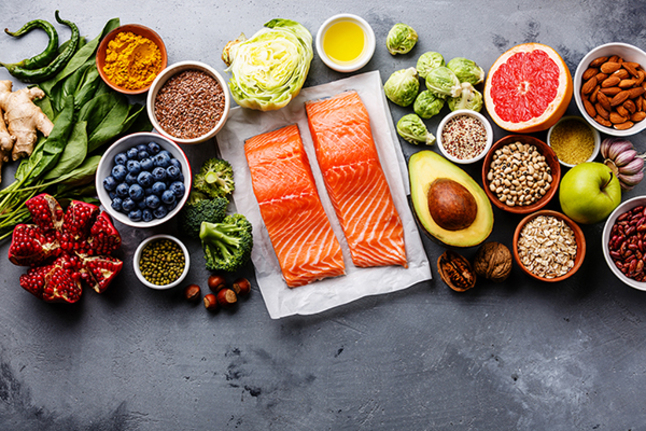Gut well-being is more than a buzzword. It plays an important part in the overall health of you. The gut is the home of billions of microbes that comprise the microbiome. The microbiome influences all aspects of your digestive system, including immune functioning and even mental well-being. A well-balanced gut microbiome helps your body to absorb nutrition, create vital vitamins, and protect against harmful pathogens. If this delicate balance gets disturbed, it could result in digestive issues or inflammation as well as chronic health issues. So, supporting your gut with a diet that is functional is a potent and natural approach to ensure long-term health.
What Are Functional Foods and Why They Matter
Functional foods are food items that provide health benefits above the basic nutritional benefits. They are a great source of bioactive compounds such as antioxidants and fiber, as well as prebiotics and probiotics, which support the physiological functions. In terms of digestive health, functional food can boost the proliferative capacity of healthy bacteria, enhance digestion, and decrease inflammation. They can act as natural allies to promote the health of your microbiome and ensure it is diverse and healthy. Instead of relying on medications or supplements, incorporating these foods into your diet is a holistic approach to health.
Fermented Foods as Natural Probiotics
Fermented foods are among the most efficient nutrients for the health of your gut. They naturally contain probiotics, which are live bacteria that help to increase the good microbes that live in the gut. These include yogurt, kefir, sauerkraut, kimchi, and kombucha. These foods do not just assist in maintaining the balance of microbial activity but also aid in improving the digestive tract and gut. Consuming fermented foods regularly will help relieve the symptoms of gas, bloating, and constipation. As the gut gets healthier, many also notice changes in their moods and levels of energy.
Prebiotic-Rich Foods Feed Good Bacteria
Although probiotics are beneficial, however, they need food to flourish. That’s the role of prebiotics. Prebiotics are non-digestible, fibrous fibers that are present in foods such as onions, garlic, leeks, and bananas, as well as asparagus and whole grains. These fibers travel through the digestive tract in a healthy way and provide food for beneficial bacteria that live in your colon. In stimulating the development of these bacteria, prebiotics aid in strengthening that barrier in the gut, boost the immune system, and decrease inflammation. The synergy between prebiotics and probiotics is crucial to an energizing and healthy gut ecology.
Whole Grains as a Fiber Powerhouse
Fiber is vital for gut health, and whole grains are among the most potent sources of fiber. Oats, barley, brown rice, quinoa, and whole wheat are rich in insoluble and soluble fiber, which aids digestion and feeds the gut bacteria. Fiber aids in moving food easily throughout the digestive tract. It also helps prevent constipation and helps to maintain regular elimination. It also aids in the production of short-chain fatty acids that are anti-inflammatory and beneficial to the colon. A varied diet of whole grains a day can greatly increase the diversity and effectiveness of the gut microbiome.
Fruits and Vegetables for Microbial Diversity
A varied diet that is rich in vegetables and fruits is crucial for a healthy digestive system. Plant-based foods are loaded with antioxidants, fiber, minerals, vitamins, and other nutrients that nourish the gut bacteria and fight the effects of oxidative stress. Different vegetables and fruits support various strains of bacteria; thus, eating a wide variety ensures that your digestive tract is home to an array of beneficial microbes. The leafy greens, berries, carrots, apples, and broccoli are all excellent options. They are rich in nutrients that aid digestion and assist in maintaining the mucosal layer of the intestine. They also provide an anti-inflammatory effect.
Legumes and Pulses for Gut-Friendly Protein
Chickpeas, lentils, beans, peas, and chickpeas are not just high in protein but are also high in prebiotic fibers. These fibers aid in the production of butyrate, a short-chain fatty acid that helps to maintain colon health and decreases inflammation. Consuming legumes regularly helps increase the gut’s motility and helps prevent an unhealthy bacterial overgrowth. Because they are a plant-based protein source, they are also more digestive-friendly than some animal proteins, which can cause inflammation if consumed in large quantities. The inclusion of legumes in your diet could therefore provide double advantages, including better digestion and healthy nutrition.
Nuts and Seeds for Gut Support
Nuts and seeds supply healthy fats, fiber, and antioxidants that aid in digestive health. Almonds, walnuts, seeds, and flaxseeds have substances that increase the activity of microbial organisms within the digestive tract. Their polyphenols have been found to boost the number of beneficial bacteria while reducing harmful ones. They also reduce inflammation and can help to repair the gut lining. A tiny portion of nuts and a few sprinkles of seeds in your everyday meals can be beneficial to the overall health of your gut. In addition, they provide lasting energy levels and help support the brain and heart too.
Herbs as well as spices, which have Gut-Soothing properties
Various herbs and spices provide digestive aids and also have anti-inflammatory and antimicrobial properties. Peppermint, turmeric, ginger, fennel, and ginger are frequently employed in traditional medicine to provide their effects on digestion. Ginger can reduce nausea and enhance gastric motility. Turmeric’s active component, curcumin, fights inflammation. Peppermint is a great remedy for digestive issues, and fennel seeds can help reduce bloating as well as gas. The natural ingredients can be used in smoothies, teas, or cooked foods to enhance the taste while also promoting gut health.
Conclusion
Your gut is the main gateway to overall health, and the food you consume directly affects the way it functions. Functional foods provide a healthy and efficient way to improve digestive health by feeding beneficial bacteria, improving digestion, and reducing inflammation. The addition of fermented foods such as prebiotics, whole grains, fruits, legumes, vegetables, seeds, nuts, and even herbs to your diet creates an enviable and healthy microbiome. Alongside regular hydration and healthy living habits, these food items provide the basis for a healthy digestive system. Naturally supporting your gut will not only aid in digestion but also boost your immunity, improve your mood, and boost your health.
FAQs
1. Do functional foods aid in bloating and gas?
Yes, some healthy foods, specifically those that are rich in probiotics and fiber, can reduce the gas, bloating, and other digestive problems by enhancing gut balance and mobility.
2. Is it acceptable to have the same healthy foods throughout the day?
While consistency is important, diversity is the key. A wide range of healthy foods can lead to the development of a diverse and robust gut microbiome.
3. Are seniors and children able to also benefit from functional food?
Absolutely. Functional foods are beneficial to people of all ages. They may help improve digestion as well as immunity and overall well-being.
4. How long will it take to see the effects of eating foods that are gut-friendly?
Certain people notice improvement in digestion after a few days; however, lasting changes in the microbiome and overall gut health could require several weeks of constant modifications to the diet.
5. Do you know of any health risks from eating too many food items that are functional?
Although most functional food items can be considered safe to eat, abrupt spikes in the amount of fiber or fermented food can cause temporary discomfort such as gas or gastric bloating. It is recommended to slowly introduce them into your diet as well as drink lots of fluids.




